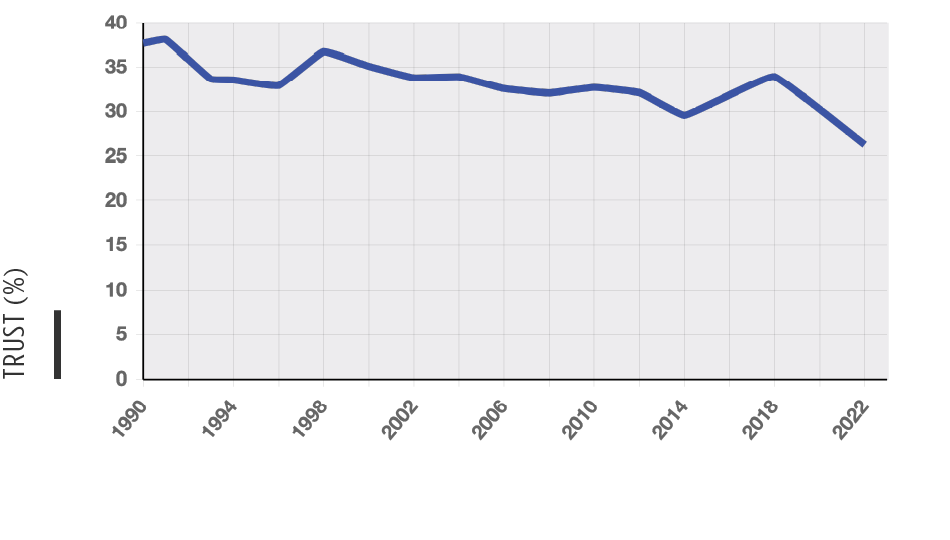Trust in other people
Specific Measure
Whether adults report that other people can generally be trusted (Source: Authors' analysis of General Social Survey)
How does the US rank globally?
- Specific Measure: (same as above). (Source: Authors’ analysis of the World Values Survey)
- Percentage of countries the US outperforms: 73% (out of 30 countries)
- International Rank Trend: Stable
National Trend Worsening

For more information about data sources and treatments, download the Data Notes.